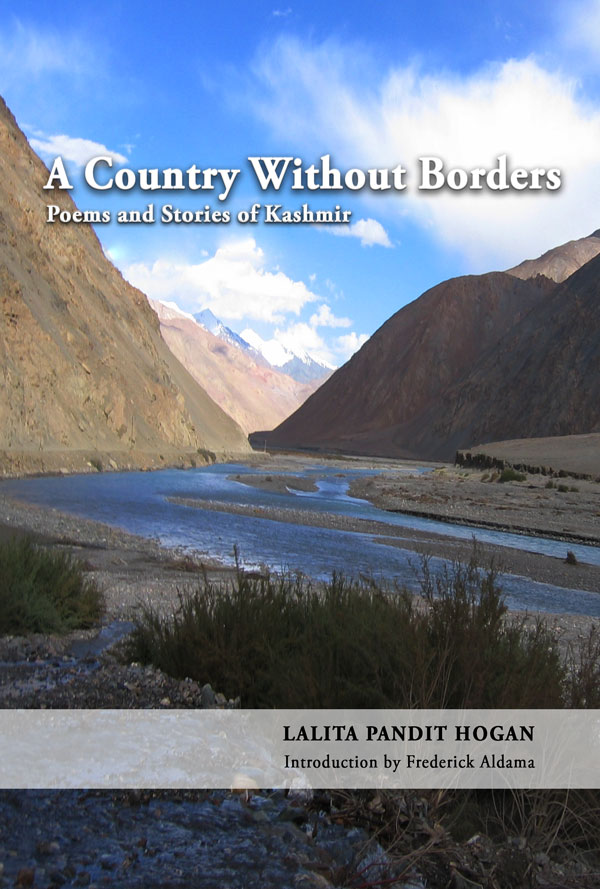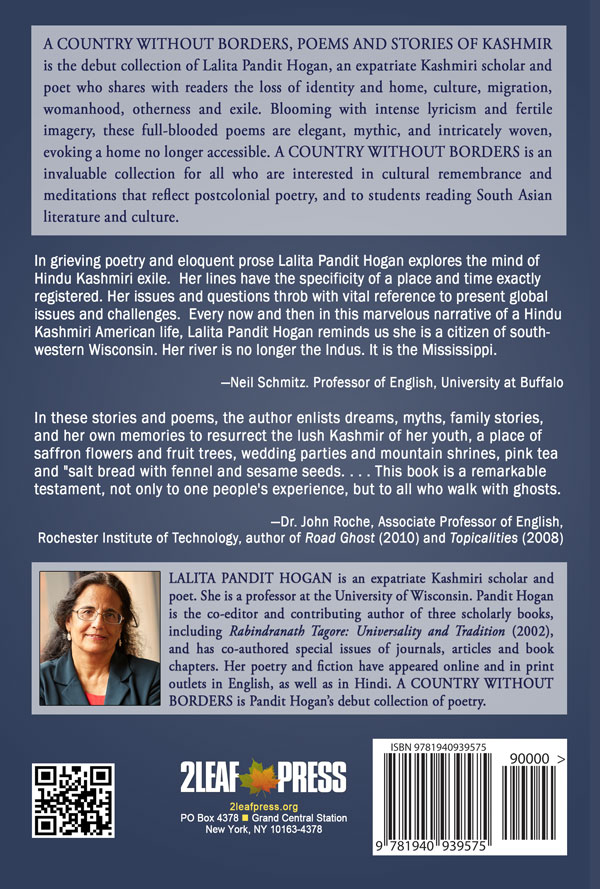A COUNTRY WITHOUT BORDERS, POEMS AND STORIES OF KASHMIR is the debut collection of Lalita Pandit Hogan, an expatriate Kashmiri scholar and poet who shares with readers the loss of identity and home, culture, migration, womanhood, otherness and exile. Blooming with intense lyricism and fertile imagery, these full-blooded poems are elegant, mythic, and intricately woven, evoking a home no longer accessible. A COUNTRY WITHOUT BORDERS is an invaluable collection for all who are interested in cultural remembrance and meditations that reflect postcolonial poetry, and for students reading South Asian literature and culture.
Telephone: 646.801.9446















Reviews
There are no reviews yet.